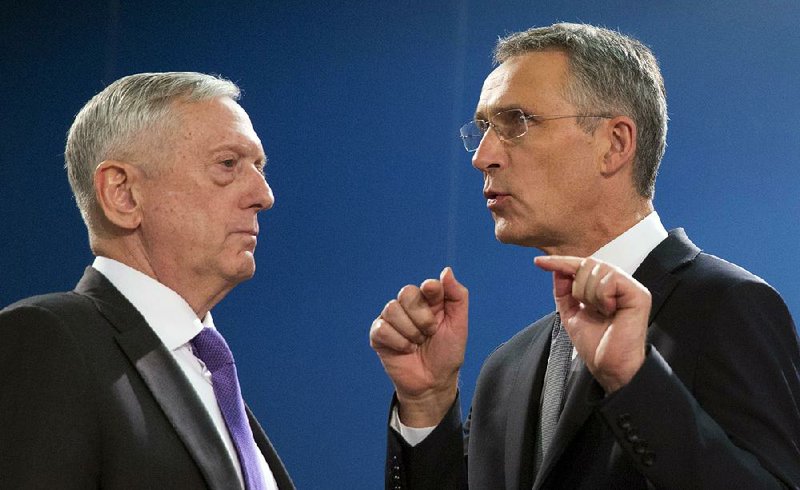BRUSSELS -- NATO on Tuesday extended Secretary-General Jens Stoltenberg's tenure for two more years as head of the world's biggest military alliance, setting him up to be its longest-serving civilian leader since the end of the Cold War.
Stoltenberg, 58, has held the post since 2014, and his term has been marked by a rise in global security challenges, including a resurgent Russia and the rise of the Islamic State militant group in Syria and Iraq.
NATO said in a statement that its 29 member nations decided to prolong the former Norwegian prime minister's term until Sept. 30, 2020.
It said the allies "congratulate the Secretary-General and have full confidence in his ability to continue his dedicated work to advance NATO's adaptation to the security challenges of the 21st century."
Stoltenberg told reporters that he was "honored and grateful" to have his term prolonged.
British Prime Minister Theresa May lauded Stoltenberg as a "true champion of the NATO alliance."
She said "he has made sure that NATO has stood strong but not stood still, meeting Russian aggression in eastern Europe while reforming to face developing threats such as cyberattacks and hybrid-warfare."
Many allies took to Twitter to congratulate him, with U.S. NATO envoy Kay Bailey Hutchison saying "he's been a terrific leader and I know he'll continue to modernize the Alliance and strengthen our collective defense."
Last week, the German government backed a two-year extension of Stoltenberg's term.
Defense Minister Ursula von der Leyen said Stoltenberg had "the full support of Germany," adding that he had "done excellent work modernizing NATO and adapting its structures to a changed security situation."
She also praised his strong support of closer cooperation between NATO and the European Union, which have 22 member states in common.
NATO secretaries-general chair meetings of the North Atlantic Council, NATO's decision-making body. Stoltenberg's main task is as an administrator to run the NATO headquarters in Brussels and to forge consensus among member states whose views on security challenges routinely differ.
Stoltenberg took up the position just after Russia had annexed Ukraine's Crimean Peninsula and the Islamic State had seized cities in Syria and Iraq, inspiring a new, more brutal form of terrorism that would wreak havoc in European capitals.
A keen cyclist and skier, Stoltenberg said he's looking forward to more time in office.
"It's an expression of trust which gives me a strong mandate, and that is important because times are challenging," he said.
"I was a bit surprised, because my understanding was that it was out of the question to be secretary-general for more than five years, and this is the first time since the end of the Cold War," he added.
A Section on 12/13/2017
